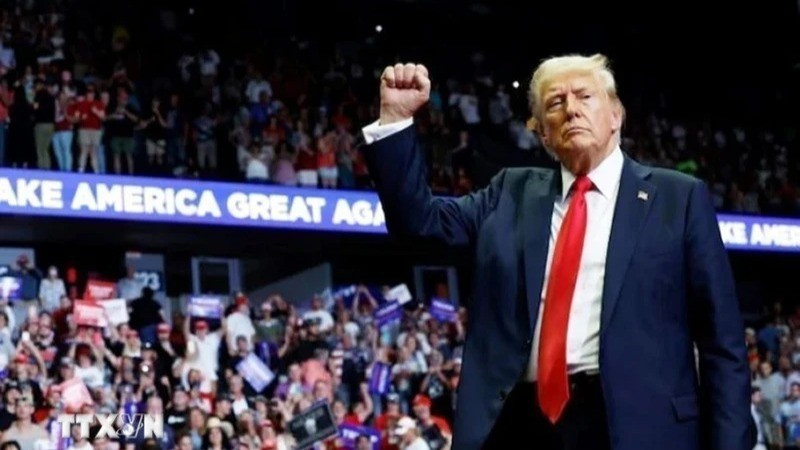Just before President-elect Donald Trump takes office, Fitch Ratings has noted that the US faces significant challenges regarding taxes and spending in 2025, also warning about the recent weakening of public governance.
In recent years, the US Congress has seen intense debates over the best approach to address the growing budget deficit. Balancing tax hikes and spending cuts, or a combination of both has been a hot topic in political debates among lawmakers.
This situation is expected to become even more complicated when President-elect Donald Trump assumes office. During his campaign, Trump pledged to protect social welfare spending while also promising to extend tax cuts set to expire at the end of the year.
Although the Republican Party will control both houses of Congress and the White House, the narrow majority in the House of Representatives could create difficulties in passing budget-related decisions, especially on sensitive issues such as raising the debt ceiling and approving the budget.
Regarding the new budget package, which is causing disagreements, House Speaker Mike Johnson stated that his plan is to move the budget package from the House to the Senate by early April to ensure that the bill can become law by the end of the month.
The main goal of this budget package is to address key issues, including immigration policies, border control, tax reform, energy, and raising the debt ceiling. Observers note that to implement this plan, Johnson will face several challenges, particularly given the slim Republican majority in the House, with 219 seats compared to the Democrats' 215.
Meanwhile, in the Senate, with 53 seats, the Republican Party plans to use the budget reconciliation process to pass this large agenda package, allowing them to bypass the minimum 60 votes required.
However, even within the Republican Party, there is a lack of full consensus on the bill. Some Republican leaders in the Senate, including Majority Leader John Thune, Senator Lindsey Graham, and Stephen Miller (who will be the White House Deputy Chief of Staff for Policy), have supported a strategy of splitting the bill into two separate pieces.
Under this plan, the Republicans would first pass bills related to border security and energy permitting, before moving on to tax reform. However, Speaker Johnson has decided to pursue a single strategy with a comprehensive reconciliation budget package, which has received support from Republican leaders such as Senators Bill Cassidy and Jim Banks.
The Speaker of the House believes that consolidating all major issues into one package will help speed up the process and provide an opportunity to achieve greater consensus within the Republican Party, aiming to achieve key political objectives such as securing the border, strengthening the military, and ensuring that tax cuts continue to be effective.
Meanwhile, the US debt ceiling was reinstated on January 2, becoming a divisive challenge that Republican lawmakers will face in 2025. President-elect Donald Trump is urging Republican legislators to address the debt ceiling issue before he takes office on January 20. The current US debt stands at over 36.1 trillion USD, and it is forecast to hit the ceiling between January 14 and January 23. Therefore, the Treasury Department must immediately implement special measures to prevent a default.
According to the Bipartisan Policy Centre, how long it will take for Congress to resolve the debt ceiling dilemma largely depends on federal tax revenues collected in the spring, the rate of spending for supplemental disaster relief funds, additional federal spending laws, and the state of the economy.
A default could also shake the global economy and stock markets, potentially causing US administration bond yields to rise and increasing borrowing costs. Last month, Republican leaders in the House proposed raising the debt ceiling by an additional 1.5 trillion USD in 2025 under the budget reconciliation bill, which would include a net reduction in mandatory spending of 2.5 trillion USD, pushing the US toward the new debt ceiling by the second half of 2025.
Given the significant fiscal challenges facing the US in 2025 related to the debt ceiling, budget allocations, and tax cuts amid large deficits and growing debt burdens, Fitch's assessment indicates that it is unlikely these issues will be resolved quickly, stemming from long-standing weaknesses in the federal government's budget allocation process and the Republican Party's narrow majority in the House.
Fitch suggests that the lack of a unified budget process and ongoing debates over new tax and spending policies will make decision-making more difficult, impacting the new US government's financial management capabilities.
















